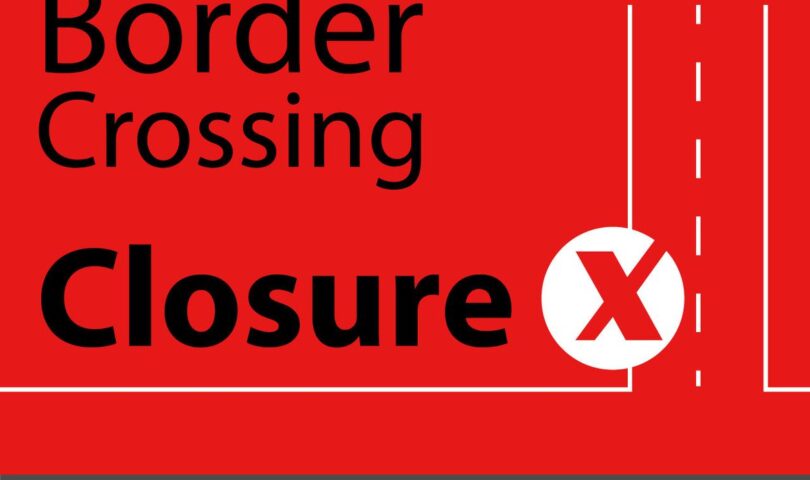President Donald Trump said Wednesday morning that the United States will temporarily close its border with Canada to “non-essential traffic” due to the coronavirus pandemic.
“We will be, by mutual consent, temporarily closing our Northern Border with Canada to non-essential traffic,” Trump wrote on Twitter.
“Trade will not be affected. Details to follow!”
Canada’s prime minister Justin Trudeau, at a press conference in Ottawa after Trump posted his tweet, said “I just spoke to President Trump again this morning, and we have agreed that both Canada and the United States will temporarily restrict all non-essential travel across the Canada-U.S. border.”
“Travelers will no longer be permitted to cross the border for recreation and tourism. In both our countries, we’re encouraging people to stay home,” Trudeau said. “We’re telling our citizens not to visit their neighbors unless they absolutely have to. Well, this collaborative and reciprocal measure is an extension of that prudent approach.”
Trudeau emphasized that “essential travel will continue.” That, he said, includes Americans and Canadians crossing the border to do “essential work and for other urgent reasons.”
“Our governments recognize that we preserve supply chains between both countries,” he said. “These supply chains ensure that food, fuel and life-saving medicines reach people on both sides of the border. Supply chains including trucking will not be affected by this new measure.”
At the same press conference, Trudeau announced a nearly $21 billion fiscal stimulus package to bolster Canada’s economy in the face of the coronavirus crisis.
The announcement is just the latest in a flurry of dramatic action in recent days aimed at slowing the spread of the coronavirus.
On Monday, Trudeau said he was closing his country’s borders to foreigners, with the exception of American citizens.
On Tuesday, the European Union said it would close its external borders to non-citizens because of the coronavirus outbreak.
The border between the United States and Canada is the world’s longest border between two countries.
On Tuesday, Canadian Deputy Prime Minister Chrystia Freedland discussed at a press conference the potentially massive effect of closing border.
“Nearly 200,000 people cross that border every day and that border and that traffic that goes across that border is literally a lifeline for both the Canadians and the Americans on both sides of that border,” Freeland said at that event, according to the news site CBC.
“We get our groceries thanks to truckers who drive back and forth across that border. Very urgently needed medical supplies and medicines go back and forth across that border,” she said. “And essential workers go back and forth across that border every day.”
“So it is a unique relationship for Canada and it’s important for us in handling our situation on the border to be sure that we act to get things right,” Freeland said, according to CBC.
U.S. equity markets were down sharply on Wednesday morning as the Trump administration requested an additional $45.8 billion from Congress to cover “unanticipated” costs incurred by government agencies responding the coronavirus crisis.
- Laker Men’s Basketball Handle Kuyper 88-55 - December 23, 2024
- MYWAY Sault Bridge Brawl & NEMWA Regional Results - February 22, 2024
- Crawford County Prosecutor clears State Trooper in the fatal shooting of man earlier this month - February 23, 2023



